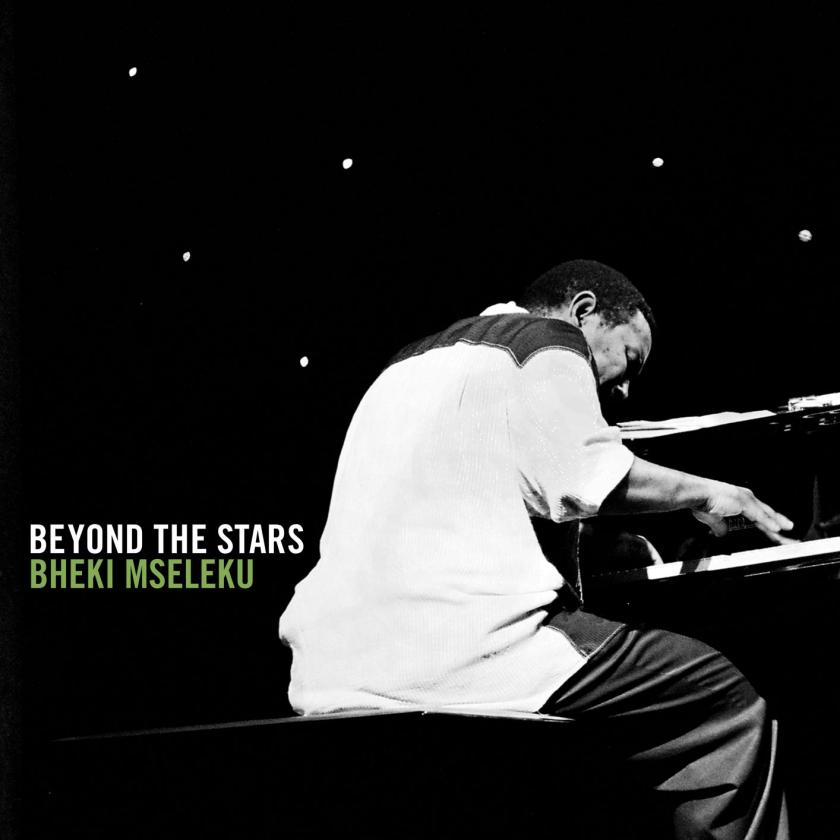Praise gets heaped on the already well known. And that often leaves others in the shadows. I’m not saying that Abdullah Ibrahim doesn’t deserve the accolades – notably, “our Mozart” from Nelson Mandela – but there have been other genius level South African pianists: one was Moses Molelekwa who died at just 27. The other is the very great Bheki Mseleku (1955-2008).
Mseleku’s album Timelessness, recorded with a host of American jazz super-heavyweights in 1993, has been widely hailed as a masterpiece. And this newly-released solo piano album Beyond the Stars (Tapestry Works), recorded in London in 2003 might well be another. It is a very different outing, a far more spiritual and solitary exploration, but what is certain is that it is a massive statement from a huge musician.
The renown and respect that Bheki Mseleku has received has come mainly from other musicians. UK flautist Gareth Lockrane, who worked with Mseleku in the 2000s, has written: “Bheki had it all. He was massively creative, he embraced all musical traditions and cultures, and there’s a spirit and personality in his work that’s stunning. He had a god-given gift for a simple memorable melody." Mseleku has also left his mark on the newer generation of South African pianists, especially rising Blue Note label star Nduduzo Makhathini, who has written in homage to him in the sleeve notes to Beyond The Stars.
There is astonishing life and energy right from the start of this album with the rhythmically hooky “Cosmic Dance”. The track has an instantly appealing upbeat vibe reminiscent of Horace Silver’s “Cape Verdean Blues”. Throughout his life, Mseleku saw music as having a healing power, and there is a consistent sense that his whole being is invested in what he is playing (and Jarrett-ishly singing as well on this tune). We find harmonic adventure, passion and conviction but also a compelling shape. For this “gentle genius”, as Eugene Skeef has described Mseleku, it is always a case of being fully and convincingly present in the moment, whether loud or quiet, rather than of holding back.
Eugene Skeef’s role in Mseleku’s life and career was essential. Mseleku was diabetic, he was questionably diagnosed more than once as bipolar, and he was also an idealist prone to “squander his earnings in acts of spontaneous philanthropy”, as one obituary writer put it. Skeef, a long-term and consummately loyal friend, furthered the cause of Mseleku’s musicianship becoming better known – and continues to do so with the release of this album.
The most substantial track is “Isango” (meaning a gateway in Zulu). Over a span of nearly seventeen minutes, Mseleku starts by meditating and paraphrasing Burt Bacharach’s "The Look of Love", and proceeds to develop a tremolando-filled, orchestral approach to the piano. It is almost as if he wants to defy the inevitable dying of the vibration of the strings. Others do this too – the Belgian Jef de Neve comes to mind – but Mseleku simply does it far bigger and better; there really isn’t a wasted note here.
Another highlight is “Ekhaya”. This is dance, with a hypnotic cross-beat from that South African thing, similar to the "pushed beat" of gospel music, of landing on the “one” early. “Izanusi” is in complete contrast: darker and minor-ish, toying in an unhurried way with a simple idee fixe. There are emotional parallels here with passion of the duende in flamenco. "Light of Love" is groovier, jazzier and definitely flashier (Mseleku worked immensely hard at technique and finger speed, and it shows). The hint of Bernstein’s “Lucky to be Me” at the end of that track brings a smile every time I listen to it. The final track, “Transcendence” is reminiscent of the quieter side of Jarrett: meditative, reaching outwards and upwards for the spiritual, and a clear exposition of what writer Jon Lusk has called Mseleku’s “musical quest for inner peace”.
Thoroughly recommended. And if the rules for albums of the year can be bent to accommodate one that was recorded in 2003 – please? – then Beyond The Stars definitely deserves to be up there among them.















Add comment